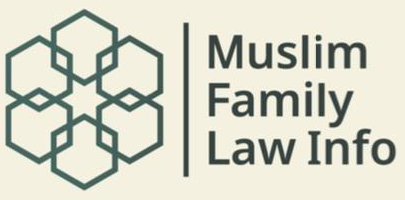Muslim Marriage FAQs
16. What is Mahr?
It belongs solely to the bride and cannot be taken back once given.
The mahr may be paid in full at the wedding or agreed to be paid, in part or in full, at a later date.
Any unpaid portion remains a debt owed by the husband to his wife.
She has the right to keep it, or she may choose to forgive the debt entirely, but only if she does so willingly and of her own free choice.
17. Why does the mahr exist?
The practice of giving mahr is not the same as dowry.
Mahr has been mentioned in the Qur’an as an entitlement of a woman when a man wants to marry her.
It is a symbol of respect, honour, and commitment to her, and it becomes her exclusive property from the moment it is agreed upon. The mahr is not a ‘bride price’ as ‘dowry’ is often known as. It is also not a payment for marriage.
“And give (O men!) the women their bridal-gifts with a good heart…” [Qur’an 4:4]
18. How much mahr do I have to give my bride?
The mahr should not be excessive so as to be a burden on a man which may prevent him from being able to get married.
However, it is also a right of a woman and she should receive a mahr that is appropriate for her circumstances, as well as conforming to what might be considered reasonable by her community and peers.
In some cultures, the mahr is set at a tokenistic amount, such as £101. The implications of agreeing to a mahr like this on financial security for the wife should be considered, especially if the couple are not planning on having a legally recognised marriage.
‘It is not blameworthy for a woman to demand a reasonable amount that other women within her father’s family would deserve, considering as well her status, beauty, education and the times and society she lives in.’ [al-Maydani, al-Lubab].
The Prophet (SAW) paid varying amounts of mahr in his marriages; the mahr paid to Fatima by ‘Ali (RA) was commanded by the Prophet (SAW), and thus, this amount is often the amount considered when ‘sunnah mahr’ is discussed (this is also called the Mahr Fatimi).
This mahr was 480 silver dirhams, though there is some difference in opinion on this. One silver dirham is equal to approximately 3.06 grams of silver, so one would calculate the price of 1469.60 grams of silver on the day of marriage to approximate the sunnah mahr. This is taken from a narration in which ‘Omar (may Allah be pleased with him) said:
The minimum dowry, or mahr, is 1.06 grams of gold in the Maliki school and 10 grams of silver in the Hanafi school. However, there is no legal maximum amount to be requested or offered.
The Prophet (SAW) said:
19. What can count as mahr?
Mahr is usually a sum of money, gold or other tangible asset.
However, Mahr can even be beneficial knowledge in the absence of wealth. There was a case where the Prophet (SAW) let a man marry a woman with the mahr being that he would teach her verses of the Qur’an that he had memorised as he had no material wealth to give her.
This confirms that mahr depends on the circumstances of the parties.
20. When does the mahr need to be decided?
If it is not specified at the time of the Nikah, the marriage contract will still be valid, but a specific mahr would still be due and the wife is entitled to a mahr similar to what has been given to her peers.
21. When do I need to pay the mahr?
If it is deferred to a later date, it becomes a debt the husband owes to his wife.
The wife can subsequently forgive the debt if she chooses to do so out of her free will, but she is fully entitled to request payment. If the parties separate and divorce, any unpaid Mahr becomes payable at that time.











